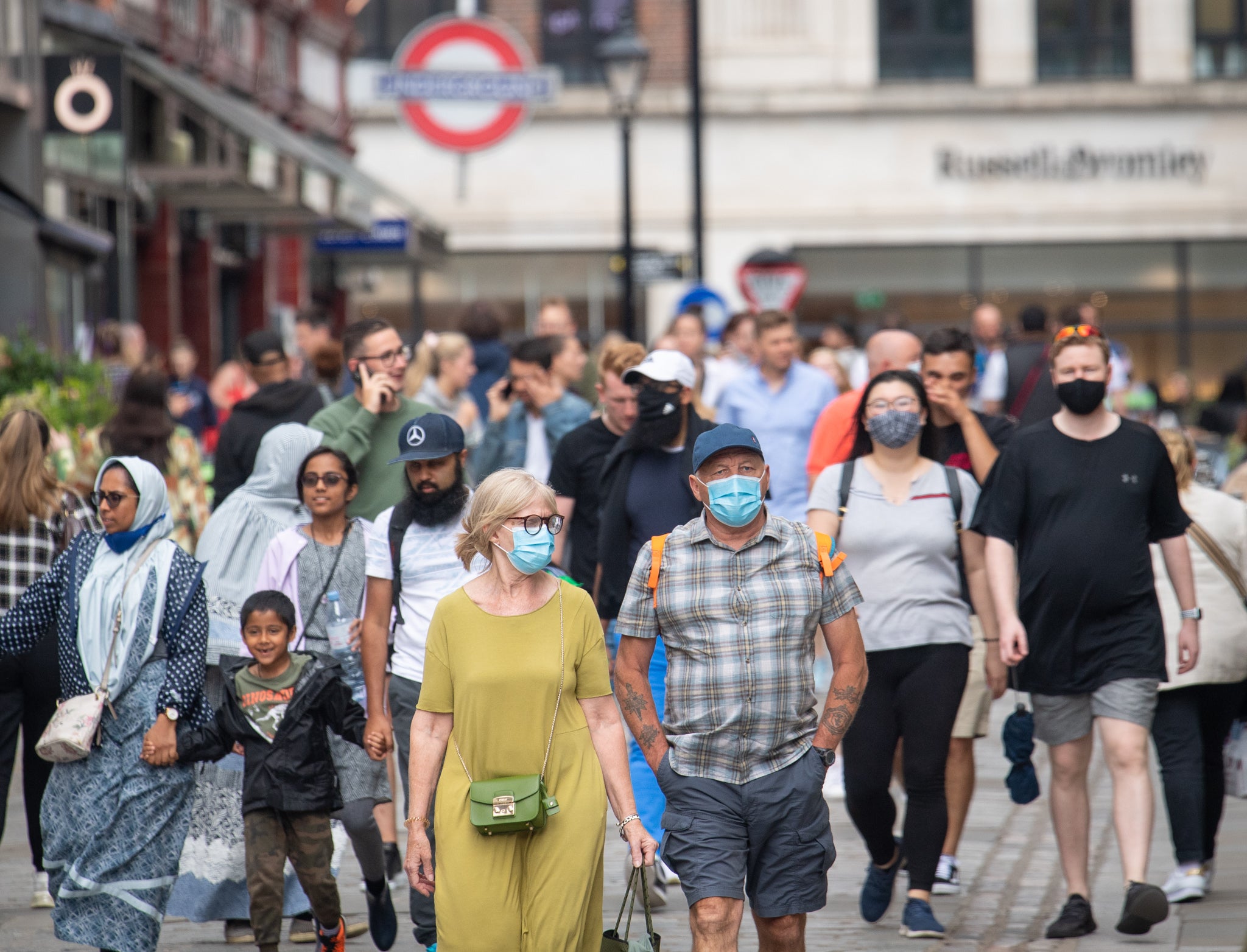Rising infection rates and inflation sees economic growth cool
The latest data from IHS Markit/CIPS shows the economy’s growth slowed to its lowest rates since March.

Your support helps us to tell the story
From reproductive rights to climate change to Big Tech, The Independent is on the ground when the story is developing. Whether it's investigating the financials of Elon Musk's pro-Trump PAC or producing our latest documentary, 'The A Word', which shines a light on the American women fighting for reproductive rights, we know how important it is to parse out the facts from the messaging.
At such a critical moment in US history, we need reporters on the ground. Your donation allows us to keep sending journalists to speak to both sides of the story.
The Independent is trusted by Americans across the entire political spectrum. And unlike many other quality news outlets, we choose not to lock Americans out of our reporting and analysis with paywalls. We believe quality journalism should be available to everyone, paid for by those who can afford it.
Your support makes all the difference.The UK economy has suffered a sharp slowdown in growth so far this month, with staff and raw material shortages to blame, according to a new survey.
The closely-followed IHS Markit CIPS composite output index, which measures different parts of the economy, hit 57.7, down from 62.2 in June to levels not seen since before lockdown restrictions started to ease. Anything above 50 is seen as a sign of growth.
Concerns about the loss of momentum also led to the lowest degree of optimism towards the business outlook for nine months, with companies struggling to manage large parts of the workforce off due to being told to self-isolate.
Transport, hospitality and other consumer-facing services companies were the hardest hit, though manufacturing also saw growth weaken markedly during the month
Some also reported that workers had taken unused holiday accumulated during recent lockdowns.
Around 32% of those surveyed said they had seen a rise in business activity during July, compared to 16% that signalled a decline, with looser restrictions, a boost in consumer spending due to greater numbers of “staycations” and a strong order book in the manufacturing sector.
The pace of the rise in levels of new work was the slowest in the current five-month period of expansion, with some firms citing a drop in business and consumer confidence due to the pandemic situation, while others continued to report Brexit-related difficulties with export sales.
Manufacturers in particular said rising raw material costs, Brexit border checks and increased delays in global shipping was playing a part in the slowdown.
The UK services business activity index hit 57.8 – a four-month low and down from 62.4 last month; the Flash UK manufacturing output index in the first half of July also hit a four-month low at 57.1 – down from 61.1 in June; and the Flash UK manufacturing purchasing managers index (PMI) hit a four-month low of 60.4, compared with 63.9 last month.
While current staff absences continue to cause problems, there were also issues with recruitment, with employment growth reducing to its slowest rate since March.
Large number of staff departures and a lack of candidates to fill roles was highlighted by the survey.
Inflationary pressures are also growing, with wage inflation, higher transport bills and price hikes by suppliers all impacting the economy.
However, manufacturers said while prices continue to rise, they are not increasing at the same speed as the all-time highs of June.
UK private-sector firms remain optimistic overall about their prospects for business activity growth in the coming 12 months.
However, the degree of confidence dropped to its lowest since October 2020 as the second series of UK lockdowns began.
Chris Williamson chief business economist at IHS Markit, said: “July saw the UK economy’s recent growth spurt stifled by the rising wave of virus infections, which subdued customer demand, disrupted supply chains and caused widespread staff shortages, and also cast a darkening shadow over the outlook.
“Transport hospitality and other consumer-facing services companies were the hardest hit, though manufacturing also saw growth weaken markedly during the month. “